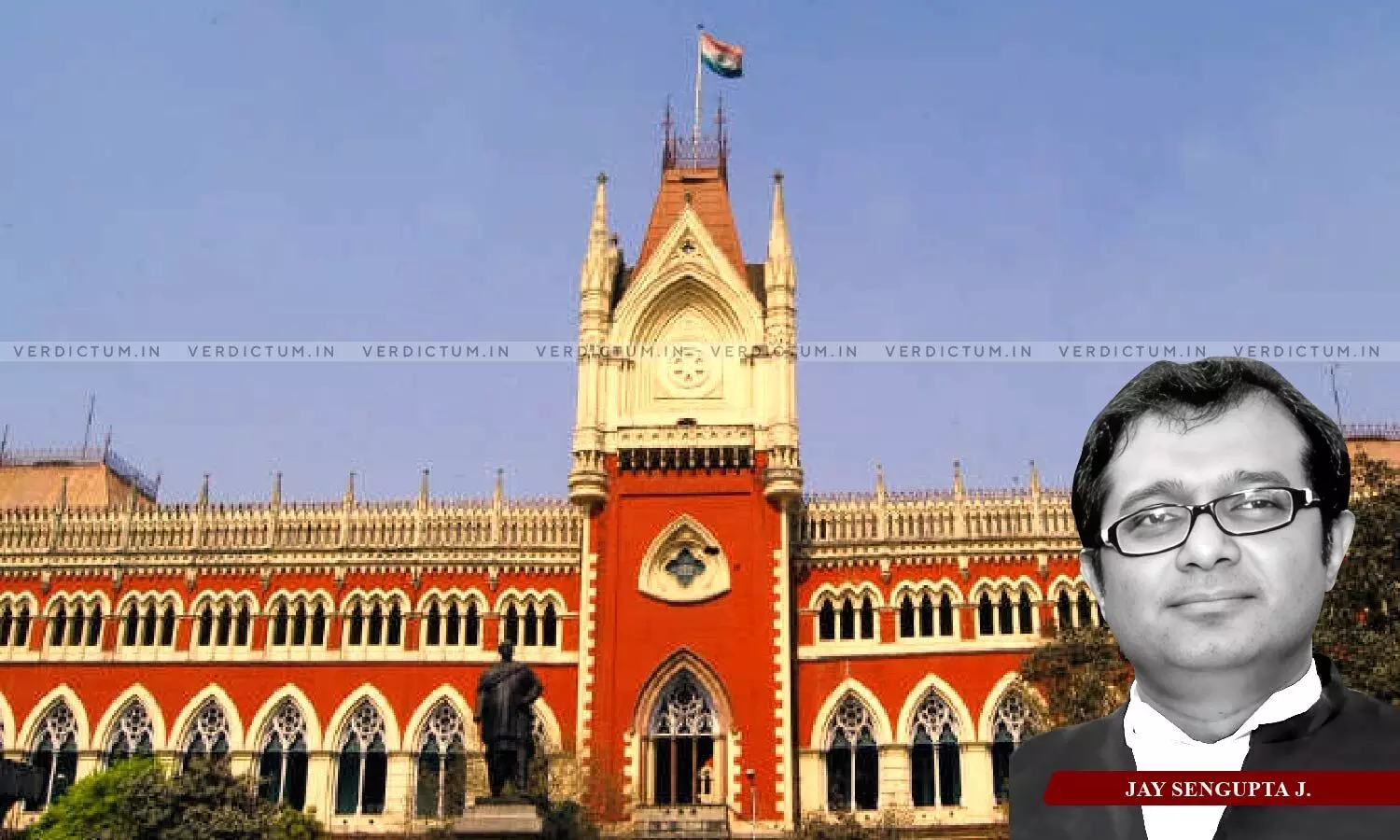
Promulgation Of Order U/s. 144 CrPC Requires Careful Consideration As It Concerns Rights Of Indian Citizens: Calcutta High Court
 |
|The Calcutta High Court set aside an order passed by the Sub-Divisional Magistrate (SDM) under Section 144(2) of the Criminal Procedure Code, banning the rally of the Petitioner.
The Court held that an order under Section 144 of CrPC cannot not be passed ‘at the drop of a hat’. It requires careful consideration and reasoning, especially as it concerns the rights of Indian citizens, the Court emphasised.
The Bench of Justice Jay Sengupta observed, “Promulgation of an order under Section 144 of the Code cannot be done at the drop of a hat. It has to be done by exercising more care and circumspection and with a better reasoning. Afterall, we are dealing with rights of the citizens of India”.
Advocate Rajdeep Majumder appeared for the Petitioner, Advocate Wasim Ahmed appeared for the State and Advocate Indrajeet Dasgupta appeared for Respondent no.9.
The Petitioner filed a Writ Petition before the High Court challenging an ex-parte order passed by the SDM. The Petitioner (Who was the Mandal President of the party) contended that he had informed the local police station about an upcoming rally. However, on August 18, 2023, the SDM issued an order under Section 144(2) of the CrPC, which banned the rally. The Petitioner contended that the order was malicious and intended to prevent the party from holding the rally. He argued that the order lacked specificity in terms of the prohibited acts. On the other hand, the State argued that the order was necessary to uphold law and order in the area. They contended that the registration of four criminal cases in the past few days indicated a high likelihood of violence if the rally proceeded.
The Court emphasized that an order can only be issued under Sections 144 or 144(2) of the Criminal Procedure Code (CrPC) if the Magistrate believes that the directive can prevent obstruction, annoyance, or harm to anyone who is lawfully employed or can endanger life, health, or safety.
The Court noted that the test laid down by the Supreme Court in the case of Babulal Parate v. State of Maharashtra and others [AIR 1961 SC 884] was not satisfied while passing the order. The order only stated that a political rally was to be held, and there was a possibility of a breach of peace and tranquility in the area. There was no mention of a particular incident or criminal case and no record of the Magistrate's satisfaction. In this case, the standard could not be satisfied, and as a result, an order under Section 144 of the Code could not be issued.
“From the impugned order passed under Section 144(2) of the Code it does not appear that the above referred conditions have been taken into account. The only two considerations which are there in the prefatory part are that a political rally is to be held there and that there are chances of serious breach of peace and tranquility normal functioning of this locality. Not even a particular incident or a criminal case has been referred to”, the Court noted.
The Court emphasized that it is the duty of the Administration to ensure that all political parties are given equal opportunities to organize rallies and processions. The Court asserted that the situation seems to have returned to some level of normalcy, per the State's latest report. Additionally, there have been no negative incidents reported in the area since the cancellation of the previous meeting, the Court added.
Therefore, the Court issued the following directions.
“(i) The petitioner and his associates shall be permitted to hold a political meeting/rally at the said venue on 26th August, 2023 from 2 pm to 6 pm.
(ii) The petitioner shall nominate 3 persons and intimate their names and contact details to the Officer-in-Charge of the local police station who would be the responsible persons for conducting such meeting.
(iii) The participants of the meeting shall see to it that undue harassment is not caused to the local residents.
(iv) Sound regulations shall be meticulously followed.
(v) The meeting shall be conducted peacefully and the speakers shall not use abusive language or incite violence.
(vi) After the meeting is over, the venue shall be cleared by the organisers of the meeting.
(vii) The police authorities under the direct supervision of the SP of Purba Medinipur shall deploy adequate number of personnel to provide security to the meeting as well as to ensure that no breach of peace takes place in the locality”.
Accordingly, the Court allowed the Petition and set aside the impugned order.
Cause Title: Rajib Samanta v. The State of West Bengal & Ors.